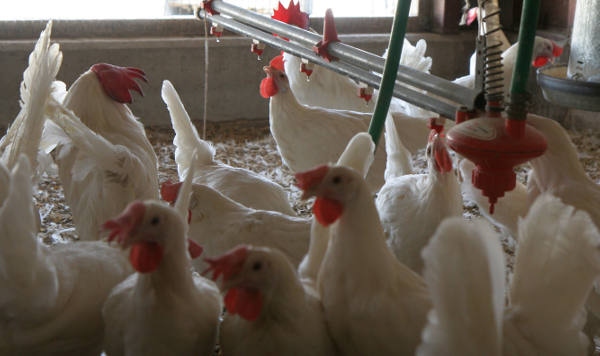
You don’t catch a cold from cold weather. Rubbing a corn kernel on a wart and then burying it under the doorstep will not make the wart dry up. And you don’t get weeds in your fields from applying poultry litter.
At least that’s what the little research currently available shows.
“We don’t have a lot of research on whether applying poultry litter to cropland increases weed pressure,” says Joseph Payne, Oklahoma State University Extension livestock specialist.
Payne, speaking during a weed management session at the annual No-Till Oklahoma Conference yesterday (Feb. 19) in Norman, said research as far back as 1934 indicates that poultry litter carries almost no weed seed.
A study back then indicated that only about .02 percent of seeds fed to chickens were viable in the poultry litter.
“It’s a real challenge to get a seed to survive a chicken’s digestive system,” Payne said. “The gizzard grinds everything up.” Also, chickens eat pelletized rations, which are heated to the point that weed seed would not remain viable.
“So we should not see weed seed in poultry litter.” Still, Payne gets questions from farmers who have noticed a “flurry of weed growth,” following application of chicken litter. “Ís chicken litter the source?”
Later research indicates it’s highly unlikely. Payne said a study at North Carolina State University in 1995 tested poultry litter products. Products that were fumigated before application showed no weed seed germination. Products that were not fumigated showed numerous weeds. Consequently, one might assume that the poultry litter did carry weed seed.
Not so fast. The study also looked at commercial fertilizer products. Products that were fumigated before application showed no weed growth. Products not fumigated showed “numerous weeds.”
The fumigation, not the nutrient, was the difference, Payne said.
Another study at Auburn University using sterile potting mix with the poultry litter came to the same conclusion. “Poultry litter is not a source of weed seed.”
What happens, Payne says, is that nutrition, whether biological or commercial, stimulates weed growth.
The litter does have value, he added. A litter product with an analysis of 63-61-50 includes $26 worth of nitrogen, $26 worth of phosphorus and $23 worth of potassium per ton. Add $2 for liming value and the total value is $77 per ton.
Payne said he would not pay that for poultry litter but would buy commercial fertilizer if nutrients were deficient. At a lower price, $40 per ton, poultry litter might be a better value.
“But remember, nutrients only have value if there is a deficiency in the soil.”
And that’s no old wives tale.
About the Author(s)
You May Also Like






